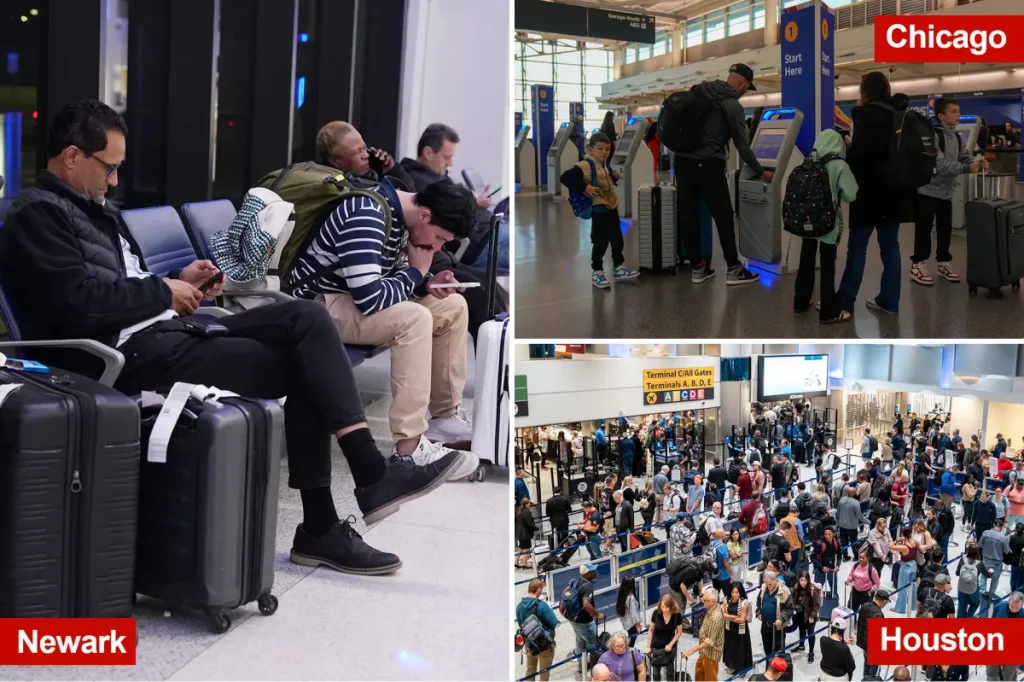FAA Orders Flight Reductions Amid Government Shutdown Crisis
In an unprecedented move, the Federal Aviation Administration (FAA) has implemented nationwide flight reductions due to the ongoing government shutdown, affecting air travel across the United States beginning Friday morning. The sweeping order impacts 40 airports spanning over two dozen states, including major hubs like Atlanta, Dallas, Denver, Los Angeles, and Charlotte. Metropolitan areas such as New York, Houston, Chicago, and Washington will see multiple airports affected, with ripple effects likely extending to smaller regional airports. This decision marks a significant escalation in the visible consequences of what has become a record-long government shutdown, with implications for millions of travelers and the broader economy.
As news of the impending restrictions spread, airlines quickly began adjusting their schedules and canceling flights in anticipation. More than 810 flights have already been canceled nationwide according to FlightAware tracking data, with major carriers announcing substantial reductions. Delta Air Lines plans to cancel approximately 170 flights on Friday alone, while American Airlines has announced plans to cut around 220 flights daily through Monday. The FAA’s order stipulates that reductions will start at 4% of normal capacity and gradually increase to 10% by November 14, affecting all commercial airlines during peak travel hours from 6 a.m. to 10 p.m. These cutbacks represent a significant disruption to the nation’s air transportation system, with industry analysts warning of “noticeable impacts” across the board.
At the heart of this crisis are the air traffic controllers who have been working without pay for more than a month. Many controllers are now facing six-day work weeks with mandatory overtime, creating a situation of mounting exhaustion and financial strain that has led to increasing numbers of staff calling out. “You can’t expect people to go in to work when they’re not getting a paycheck,” said Kelly Matthews, a business traveler from Michigan who has canceled most of her upcoming trips. “It’s not a matter of them not wanting to do the job—but you can’t afford to pay for gas, your day care, and everything else.” The human toll of the shutdown has become increasingly apparent, with essential workers forced to choose between professional dedication and personal financial survival.
Airlines have pledged to minimize disruptions for travelers, with some planning to focus reductions on routes to and from small and medium-sized cities rather than major hubs. However, the scope of the cuts suggests widespread impacts are unavoidable. Under transportation regulations, carriers are required to refund customers whose flights are canceled but not to cover secondary costs such as food and hotel accommodations unless delays result from factors within airline control. This leaves many travelers in potentially difficult situations, responsible for absorbing unexpected costs from government-mandated cancellations. The uncertainty has created anxiety among weekend travelers and those with upcoming plans, who now face the possibility of disrupted itineraries with limited recourse.
The impact of these flight reductions extends beyond passenger travel to affect package delivery services as well. Two airports on the FAA’s reduction list are major distribution centers for leading delivery companies—Memphis, Tennessee (FedEx) and Louisville, Kentucky (UPS), the latter being the site of this week’s deadly cargo plane crash. With these logistics hubs operating at reduced capacity, there may be delays in package deliveries nationwide, adding another layer of economic consequence to the shutdown. The timing of these disruptions, during a period of already high economic uncertainty, threatens to compound existing challenges for businesses and consumers relying on timely deliveries.
As flight boards across the country display growing numbers of delayed and canceled flights, the shutdown’s effects have moved from abstract budgetary concerns to concrete disruptions in Americans’ daily lives. The Trump administration has reportedly intensified pressure on Congressional Democrats to end the impasse, using the growing aviation crisis as leverage. Meanwhile, travelers, airline employees, and air traffic controllers remain caught in the middle of a political standoff with no clear resolution in sight. The unprecedented scale of these flight reductions serves as a stark reminder of how governmental dysfunction can rapidly cascade into widespread disruption, affecting everything from family vacations to business operations and the movement of essential goods across the country.


